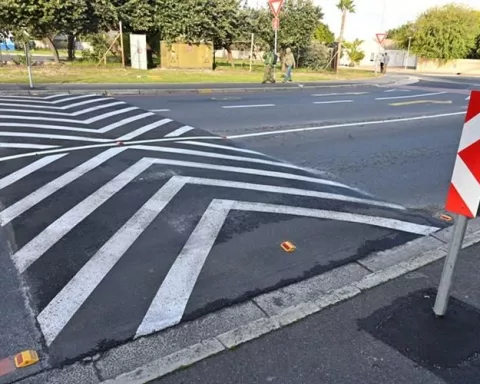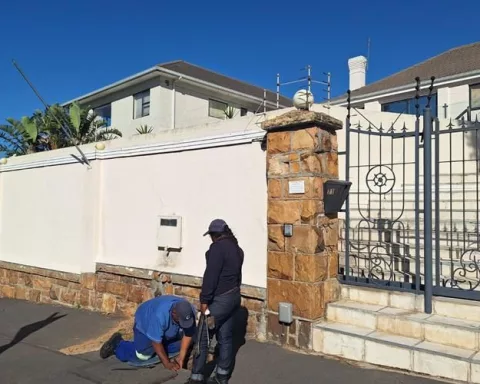Bellville in Cape Town, South Africa has proposed a comprehensive road upgrade plan for its Central Business District (CBD), including extensions of key roads, additional lanes for vehicles, and dedicated paths for pedestrians and cyclists. The city has invited public feedback, highlighting the importance of citizen involvement in shaping the future of their city. The proposed changes aim to unlock the regeneration potential of the CBD and accelerate the economic growth of the area, aligning with Bellville’s anticipated growth trajectory. The city is hosting information days and encouraging residents to share their feedback, emphasising the criticality of public insights in shaping the city’s future.
A comprehensive road upgrade plan has been proposed for Bellville’s Central Business District (CBD) in Cape Town, South Africa. The plan includes the extension of key roads, additional lanes for private vehicles and dedicated paths for pedestrians and cyclists. The city has invited public feedback on the proposal, highlighting the importance of citizen involvement in shaping the future of their city. The proposed changes are aligned with Bellville’s anticipated growth trajectory, aiming to unlock the latent regeneration potential of the CBD and accelerate the economic growth of the area.
In the ever-changing landscape of urbanisation, forward-thinking strategies serve as the cornerstone of progress. Cities worldwide, including Bellville in Cape Town, South Africa, recognise the transformative power of strategic enhancements in elevating their growth and vibrancy. Recently, significant plans for comprehensive road upgrades have been proposed for Bellville’s Central Business District (CBD) by the City’s Urban Mobility Directorate, paving the way for an exciting chapter of renewal.
Part 1: Aligning with Public Sentiment
The roads targeted – Robert Sobukwe Road, Carl Cronjé Drive, Tienie Meyer Road, Willie Hofmeyer Avenue, and Reed Street – are the pillars of Bellville’s transport infrastructure. However, this isn’t a top-down decision dictated by city officials. In a bid to democratise the process, the city has invited the public – local residents, business proprietors, and other stakeholders – to express their views on the revamped road plan proposals. This participatory approach highlights the vital role of citizens in moulding the future of their city, with the submission window of comments open until June 14, 2024.
Part 2: The Philosophy of Road Schemes
“Road schemes,” as elucidated by Councillor Rob Quintas, the city’s Mayoral Committee Member for Urban Mobility, are an integral part of long-term planning geared towards accommodating the needs of a growing population and expanding development. It involves earmarking land for future extension of road infrastructure – a vital step given the rapid pace of urbanisation. This visionary approach ensures that when expansion becomes necessary, the required land will be readily available to cater to various transportation needs – adding new lanes, connecting roads, or introducing transit facilities for the public, pedestrians, and cyclists.
The proposed amendments to Bellville’s road schemes are grounded in an understanding of the city’s anticipated growth trajectory. The future envisions the CBD transforming into an even more bustling hub of economic activity. To facilitate this transition, the city’s transport network needs to be equipped to handle future demands. Thus, a reassessment of the current transportation planning in Bellville CBD was initiated, guided by the Bellville Future City Master Plan and the newly approved Local Spatial Development Framework.
Part 3: Essential Components and their Impact
Key constituents of the proposed upgrade include the northward extension of Robert Sobukwe Road and the eastward extension of Tienie Meyer Road. These enhancements aim to improve accessibility and mobility, thereby unlocking the latent regeneration potential of the Bellville CBD. While these arterial roads are vital for the CBD, they also significantly influence the peripheral areas by supporting long-distance urban mobility, road-based freight, and public transport services, thereby accelerating the economic growth of Bellville and its environs.
The revamped road schemes promise changes that go beyond mere construction. Their objective is to cater to various modes of transport, including additional lanes for private vehicles, public transport services, and dedicated paths for pedestrians and cyclists. This multi-modal strategy aligns with the evolving trends in urban mobility and reaffirms the commitment towards building an inclusive city responsive to the needs of all its residents.
Part 4: Community Engagement and the Vision Forward
However, these proposed changes will have immediate repercussions. Existing intersections and access roads will be impacted, details of which can be accessed on the City’s Have-Your-Say page. To ensure public involvement, the city plans to host information days at the local Bellville public library.
Councillor Quintas emphasises the criticality of public insights, encouraging residents to acquaint themselves with the proposed road schemes and share their feedback. He reiterates that this is a unique opportunity for citizens to sculpt their neighbourhood’s future and that these plans have been conceived with medium to long-term prospects in mind.
The revitalisation of Bellville CBD through the proposed road schemes represents the potential of strategic planning in setting the stage for a city’s growth and progress. The comprehensive public engagement and the citizens’ active role in the process underline the democratic ethos of urban development. As Bellville strides towards a promising future, it ensures that its citizens are not merely observers but proactive contributors to this exciting narrative.
1. What is the proposed road upgrade plan for Bellville’s CBD?
The proposed road upgrade plan for Bellville’s CBD includes the extension of key roads, additional lanes for private vehicles, and dedicated paths for pedestrians and cyclists.
2. Who has been invited to give feedback on the proposed road plan?
The public, including local residents, business proprietors, and other stakeholders, has been invited to express their views on the revamped road plan proposals.
3. What is the philosophy behind road schemes?
Road schemes are an integral part of long-term planning geared towards accommodating the needs of a growing population and expanding development. It involves earmarking land for future extension of road infrastructure.
4. What are the essential components of the proposed upgrade, and how will they impact the area?
Key constituents of the proposed upgrade include the northward extension of Robert Sobukwe Road and the eastward extension of Tienie Meyer Road. These enhancements aim to improve accessibility and mobility, thereby unlocking the latent regeneration potential of the Bellville CBD. They will also significantly influence the peripheral areas by supporting long-distance urban mobility, road-based freight, and public transport services, thereby accelerating the economic growth of Bellville and its environs.
5. How is the city engaging with the public to gather feedback on the proposed changes?
The city plans to host information days at the local Bellville public library to ensure public involvement. The public is encouraged to acquaint themselves with the proposed road schemes and share their feedback, with the submission window of comments open until June 14, 2024.
6. What is the vision forward for Bellville’s CBD?
The proposed road schemes aim to unlock the latent regeneration potential of the Bellville CBD, accelerate the economic growth of the area, and align with Bellville’s anticipated growth trajectory. As Bellville strides towards a promising future, it ensures that its citizens are not merely observers but proactive contributors to this exciting narrative.












